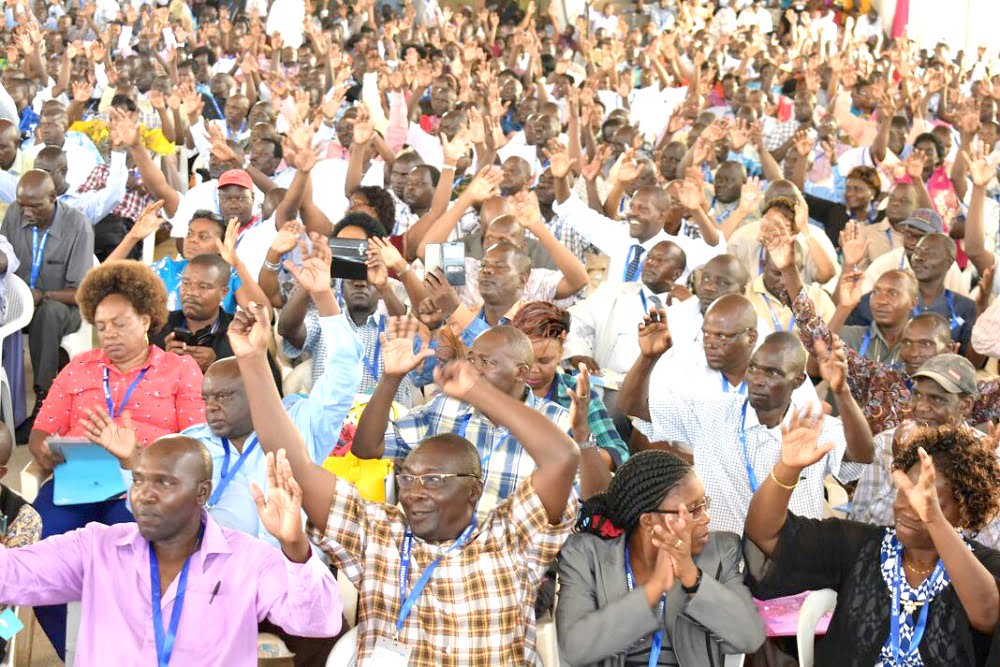By Roy Hezron
A survey carried out by Education International (EI), a global organization that represents organizations of teachers and other education employees across the globe, has revealed that many teachers might leave the teaching profession due to the stress associated with the career.
EI is the world’s largest federation of unions and associations, representing 30 Million education employees in about 400 organisations in 170 countries and territories across the globe.
The study titled Global Report on the Status of Teachers 2021 released in September this year, revealed that teachers had concerns about the attractiveness of the teaching profession as a career for future generations and the commitment of the government in funding a quality education system for all.
The report revealed that too many teachers’ unions reported that the status of teachers is constantly undermined by low pay, deteriorating conditions and infrastructure to support teaching and learning not being a priority for government investment.
Other factors were lack of respect in how teachers and the teaching profession are represented by governments and elements of the mass media, work being intensified and that more and more is expected from teachers.
“Many teachers now face a future of precarious employment as permanent jobs are replaced with casual and short-term contracts. Meaningful Continuous Professional Development (CPD) that is easy to access and provided free of charge remains a priority for many unions,” reads the survey report in part.
The survey was conducted through EI’s website to its 384 members. Responses from 178 members were used for the survey. 50 respondents out of the 178 didn’t attempt to answer any question leaving 128 participants to make substantive attempts to answer the questions.
In Kenya, Kenya National Union of Teachers (KNUT), Kenya Union of Post Primary Education Teachers (KUPPET) and University Academic Staff Union (UASU) are among the members of IE.
The survey report reveals that the level of education impacts the perceived level of respect accorded with university educators having the highest level of respect while their counterparts in Early Childhood Development Education have the lowest.
Some of the participants posited that this was influenced by the gender composition of the workforce, with perceived authority and status lowest where the percentage of female employees was the highest.
Regarding the impact of COVID-19 pandemic on the teachers’ pay, conditions, workload and relationships between governments, policymakers and unions, the survey report reveals that the pandemic has generally exacerbated already evident tensions and pre-existing inequalities in educational systems.
On the expectations embedded in workplace agreements regarding how much time a teacher was expected to be at work and how many contact teaching hours they were expected to deliver within those agreements, the survey findings showed that those working in higher education had the most non-teaching time allocated in their roles with a proportion of 60.1 per cent of their job allocated to contact teaching while ECDE (84.5 per cent), primary (81.9 per cent) and secondary (76.2 per cent) school teachers were expected to spend a greater proportion of their time in face-to-face contact with students.
On the proportion of female staff verses proportion of female leaders by level, the survey report reveals that further investigation should be done on the issue since a large number of unions did not or could not answer the questions on such an important issue.
According to the survey findings, many of those who didn’t respond to the question were Africans. Analysis of the results showed regional differences, with African systems having fewer female education employees at all levels compared to any other region.
The report further reveals that in terms of leadership, the pattern was further reinforced with differences existing between Africa and the other regions for all levels of education except for higher education.
About teachers’ salaries over the past three years, 15.4 per cent of the respondents reported that salaries have decreased over the last three years arguing that new CBAs were more likely to change conditions and not pay.
Concerning teachers’ workload over the last three years, 55 per cent of the respondents disagreed that teachers’ workloads were manageable .49.6 per cent of responses were concerned about the impact of excessive lesson planning requirements while 45.5 per cent of respondents were concerned about the impact that assessment/marking expectations had on teachers’ workloads.
“When asked about the impact that policies designed to ‘hold teachers to account’ were having on workload, over 66 per cent of respondents felt that these were contributing to workload pressures for education professionals. Worryingly, 52 per cent of the respondents could not agree that teachers were able to maintain a healthy work-life balance,” reads the survey report.







It’s true we teachers are facing hard times… Low salaries,Delocalized yet we have to cater for our families back home.Stress is like our meals each and everyday.The government should do something.